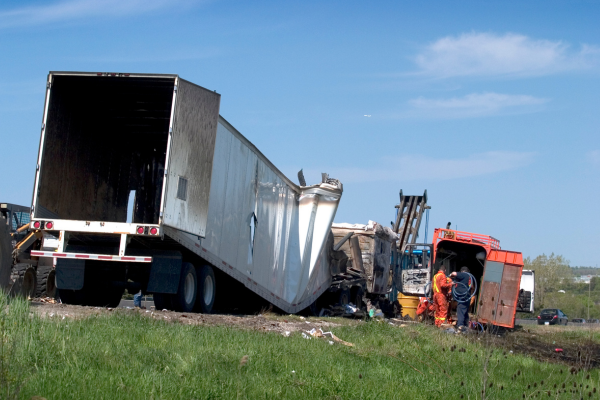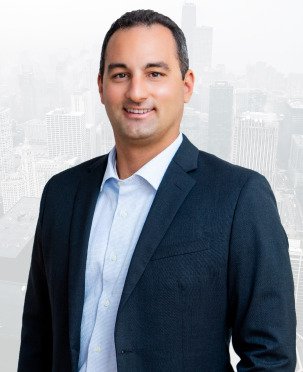
Liability in a trucking collision is a complex issue that involves multiple factors, including the circumstances of the accident, the parties involved, and the laws governing commercial trucking. Determining who is responsible requires careful analysis, as liability may not solely depend on the truck driver. It can extend to trucking companies, manufacturers, and even other drivers. Below is an overview of the main factors and entities that may be held liable in a trucking collision.
The Truck Driver
The truck driver is often the first party to be considered in a collision. They may be found liable if the driver was negligent, intoxicated, fatigued, or violated traffic laws. For example:
- Driver Fatigue: Federal regulations limit the number of hours a commercial truck driver can operate without rest. Violating these limits can lead to drowsy driving and accidents, making the driver liable.
- Speeding or Reckless Driving: A truck driver who speeds, tailgates, or drives recklessly may be responsible for causing a collision. Their failure to adhere to traffic laws can be a primary factor in determining liability.
- Inadequate Training or Inexperience: Trucking is a specialized skill. Drivers who lack proper training or are inexperienced may be more prone to accidents. If a driver is unqualified and causes an accident, they could be held responsible.
However, even if the driver is at fault, liability may extend beyond the individual to other entities, such as the trucking company.
The Trucking Company
Trucking companies are often held liable in trucking collisions under the principle of vicarious liability, which holds employers responsible for the actions of their employees. If the driver operated the truck within the scope of their employment when the accident occurred, the company may share responsibility. Factors that can make a trucking company liable include:
- Negligent Hiring Practices: If a company hires drivers without adequately checking their qualifications, background, or driving records, they can be held responsible for the driver’s negligence.
- Failure to Enforce Safety Standards: Trucking companies are required to follow federal and state safety regulations. They may be found liable if they fail to properly maintain their fleet, enforce rest breaks, or ensure drivers adhere to Hours of Service regulations.
- Inadequate Training: If the trucking company fails to train its drivers adequately, leading to a crash, they can be held responsible. Federal law requires trucking companies to ensure their drivers are properly trained.
The Truck Manufacturer or Maintenance Provider
Sometimes, liability in a trucking collision can fall on the truck or parts manufacturers. These parties may be held responsible if a mechanical failure, defective part, or improper maintenance caused the accident. Common examples include:
- Brake Failure: If the brakes fail due to a design defect or manufacturing error, the brake system manufacturer could be liable for the accident.
- Tire Blowouts: Poorly designed or defective tires can lead to blowouts, causing a driver to lose control. In such cases, the tire manufacturer might be liable.
- Improper Maintenance: Trucking companies often outsource maintenance to third-party providers. If improper maintenance leads to a mechanical failure, the maintenance company could be held responsible.
Other Drivers and Parties
In some cases, other motorists or entities could be partially or fully responsible for a trucking accident. For example:
- Other Vehicles on the Road: If another driver cuts off a truck, drives recklessly, or otherwise contributes to the accident, they may be liable.
- Cargo Loaders: Improperly loaded or overloaded cargo can lead to a truck losing balance or control. If cargo shifts during transport and causes an accident, the individuals or companies responsible for loading the truck might be liable.
Government Agencies
In rare cases, liability may be extended to a governmental entity if poor road conditions, unclear signage, or faulty traffic signals contributed to the accident. Municipalities or government agencies responsible for road maintenance or construction could be held partially responsible.
Determining Liability and Comparative Fault
Determining liability in a trucking collision often involves thoroughly examining the driver’s logs, truck maintenance records, accident reports, and witness statements. Liability is often shared between multiple parties, and comparative fault laws may apply. In states that follow comparative fault rules, each party involved in the accident may be assigned a percentage of fault, affecting the compensation they may owe or receive.
Insurance Considerations
Insurance coverage is a significant factor in trucking accidents. Due to the size and potential damage commercial trucks can cause in an accident, both truck drivers and trucking companies must carry substantial insurance policies. Depending on the circumstances of the crash, multiple insurance policies may be involved, including those of the driver, trucking company, cargo owner, and other motorists.
Contact a Florida Personal Injury Lawyer
If you have been involved in a personal injury incident, seeking legal advice is essential to protect your rights. Our legal team has more than 40 years of experience seeking justice for accident victims. Our attorneys have sought and won millions of dollars for our injured clients.
Call 850-601-1111 to schedule a complimentary consultation with no obligations. This consultation will help you explore your legal options. Let us help you fight for fair compensation.


